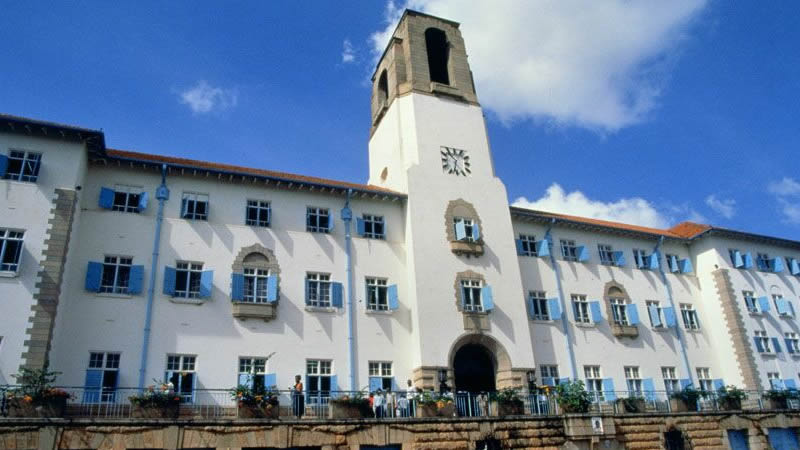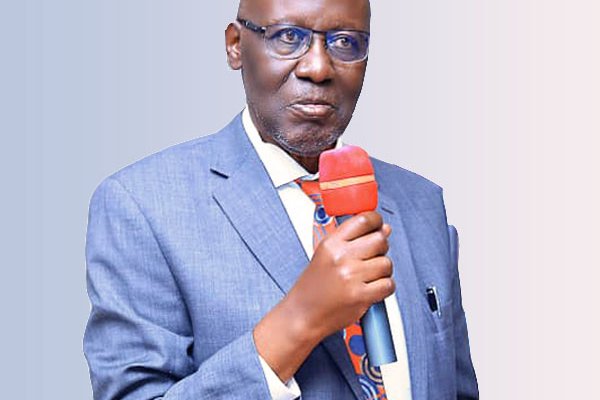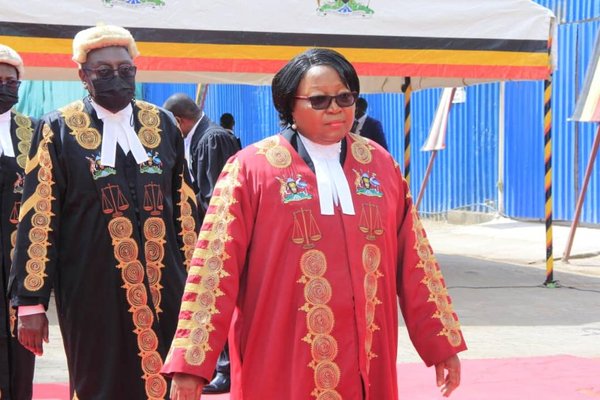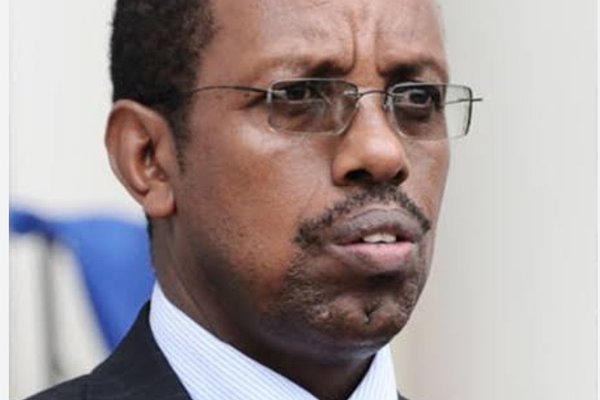By Mark Wamai
Tuesday 14th May, 2024 dawned like just any other day for Professor Emeritus Patrick Rubaihayo. Despite having celebrated his 84th birthday on 4th April, 2024 with family right after the Easter weekend, Prof. Rubaihayo was not one to be found idling about. His itinerary on the fateful day included a meeting of the Abeera SACCO, which he was very passionate about, and the following day, one of his PhD students was set to defend his thesis in plant breeding and biotechnology. And whereas his meeting and errands of the day went as planned, Prof. Rubaihayo passed on that evening in Mbarara District, after a sudden bout of discomfort.
Shock and disbelief are insufficient to describe the reactions that followed. Bustling with life even a few moments before his passing, this man that seemed larger than life with regard to his commitment to crop production and improvement, as well as lifting people out of poverty was no more, to the devastation of friends and family.
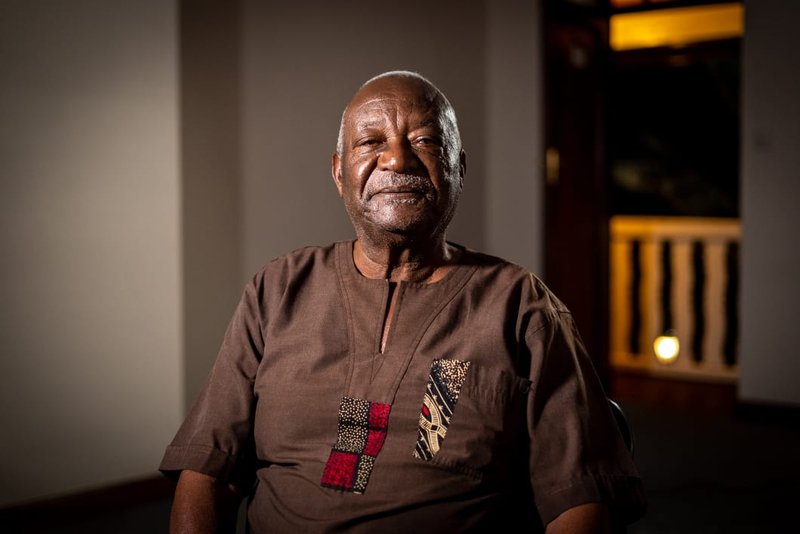
Professor Emeritus Patrick Rubaihayo
“Dad had written a book that was getting edited for publication. He had just cleared it the Friday before he passed,” his daughter, Assoc. Prof. Dorothy Okello recalls solemnly. “As part of his legacy, as was his wish too, we plan to establish The Rubaihayo Foundation that will continue his support for undergraduate and graduate studies in the area of crop production,” she adds.
Assoc. Prof. Okello further revealed that her late father was very passionate about education and skilling: “Even during his time as Minister of State for Agriculture, he was involved in the founding and support of a number of schools and institutions within his constituency including; Kashaka Girls Senior Secondary School; Rwentanga TTC (now Rwentanga Farm Institute); Rutoma SSS; Kakiika Technical School; Rwansinga SSS; Nombe SSS; Kitengure PTC; and Kashongi High School.”
Early life
Born in Mbarara District, Prof. Rubaihayo attended Mbarara Junior School for his pre-primary up to Primary Two from 1947 to 1950. He then joined Mitooma Primary School in 1951 where he attended Primary Two and thereafter lost a school year in 1952. From 1953 to 1955, he attended Primary Four to Primary Six at Kabwohe Primary School before joining Mbarara High School for Junior Secondary School from 1956 to 1957. Between 1958 and 1961 he attended Kigezi College Butobere for his Senior Secondary School and thereafter, Ntare School from 1962 to 1963 for higher school.
Academic life
In 1964, Prof. Rubaihayo was admitted to Makerere University for the Bachelor of Medicine and Bachelor of Surgery, but rejected it and pressed for admission to the Bachelor of Science programme instead. He completed the Bachelor of Science (3:1:1 Botany Programme) in 1967 and immediately embarked on his Master of Science in Plant Breeding and Genetics.
As he undertook his Masters between 1968 and 1969, Prof. Rubaihayo got a foretaste of employment as a graduate assistant and special assistant in the Department of Crop Science. “Those were the places reserved for the brightest of students,” noted the Dean, School of Agricultural Sciences, Dr. John Baptist Tumuhairwe during the requiem mass held on 17th May, 2024. The dean added that Prof. Rubaihayo initiated pre-entry exams in his own style, whereby “His first class would be an exam and after marking he would come back the following day and announce those who qualified to be in his class, and those who have to prepare to be in his class.”
In 1969, he left Makerere University to pursue his PhD in Plant Breeding and Genetics at the University of Illinois Urbana-Champaign, which he completed in 1971. Being a family man, he travelled to the United States with his wife and two infant daughters. Later, specifically between 1989 and 1990 he undertook his Postdoctoral studies at Ohio State University under a Rockefeller Foundation Fellowship.
Work life
Upon return from his PhD studies, he was officially appointed into university service as lecturer on 1st December, 1971. In 1974, he was elected to serve on the Makerere University Council and Appointments Board as Representative of Staff, where he also chaired the Housing Committee. He served on the university council until 1979. During this time, he was promoted to the rank of senior lecturer in 1975 and thereafter, associate professor in 1977. As an avid academic he taught, mentored students and conducted research in the field of annual and perennial crops.
In 1981 he answered the call to serve his nation as Member of Parliament (MP) for Mbarara Central and Minister of State for Agriculture and Forestry. During his term as MP and minister that lasted until 1985, he used his vast academic knowledge to ensure that the Coffee Rehabilitation Programme of the Mid-North and Eastern Uganda, the Agriculture Rehabilitation Project (ARP) and agricultural research among other duties all succeeded. The messages that poured in at his send-off all attested to his successful term as MP and Minister.
“Professor Rubaihayo's leadership, wisdom, and dedication, both within the party and as Deputy Minister of Agriculture, played a crucial role in shaping policies and strategies that have left a lasting impact on Uganda's political landscape. His contributions to the UPC and Uganda's agricultural sector will continue to inspire future generations of leaders and activists. His legacy as a devoted public servant, with a deep-rooted commitment to the betterment of his country, will serve as a guiding light for all who seek to create positive change,” eulogised CPA Frederick Wanume Kibedi, son to the late Ambassador Joshua Wanume Kibedi, member of the Uganda People's Congress (UPC).
Prof. Rubaihayo was at the time of his death serving as Chairman, Board of Governors of the Milton Obote Foundation, which owns and manages properties attributed to UPC. Kibedi’s position was echoed by Senior Counsel Peter Walubiri, Alternative UPC President who said that as a result of Prof. Rubaihayo’s service as minister, “By 1985, production of coffee and cotton especially were back up to past 1971 levels.”
“As a former minister of agriculture and forestry in the 1980 to 1985 UPC Government, he leaves behind a great legacy of honest and excellent service to his land and nation. His efforts in establishing agribusiness cooperative societies are well appreciated by some of us old people who saw our parents access international markets for their farm produce through the cooperative societies,” continued Dr. Apollo Buregyeya. “He has been an ethical man who refused to compromise his integrity for political gains. We shall keep him in our good memory as we pray for a wave of good and incorruptible leaders to flood our society,” added Dr. Buregeya, Founder/CEO of Eco Concrete and lecturer of civil engineering, College of Engineering, Design, Art and Technology (CEDAT).
In late 1985, Prof. Rubaihayo rejoined Makerere University at the rank of associate professor and coordinated the National Banana-Based Cropping Systems Research Programme until 1994. He also cCoordinated National Pigeon Pea Improvement Programme and Tomato Improvement Programme.
On 30th August, 1995, he was appointed to the rank of professor in the Department of Crop Science. He served as coordinator for the PhD plant breeding and biotechnology programme and supervised several graduate students to completion.
This was attested to by Prof. Henry Alinaitwe during the final send-off of the deceased professor on 19th May, 2024 in Rwenshanku Parish, Mbarara District. Prof. Alinaitwe who represented the Vice Chancellor Prof. Barnabas Nawangwe noted that, “At our last graduation in February, he was one of those with the highest number of PhDs supervised to completion, and on Wednesday after his death on Tuesday, one of his students successfully defended his thesis, another achievement as we send him off.”
In appreciation of his distinguished service, prolific research and student supervision record, the Makerere University Senate at its 107th Meeting of 5th October, 2006 agreed to bestow upon him the title of Professor Emeritus. Indeed, Professor Emeritus Patrick Rubaihayo’s legacy in banana production systems in Uganda, tissue and cell culture and molecular diversity in bananas, molecular diversity studies in sweet potatoes, indigenous and exotic palms in Uganda, variability in potato and cowpeas viruses in East Africa and genes controlling cassava starch branching enzymes will forever stand the test of time.
“He was a very dedicated member of staff and very inspirational to many young academic staff. He was farsighted in terms of training younger men and women in his field, and played a very important role in the growth and development of the Makerere Graduate School into the current Directorate of Research and Graduate Training (DRGT),” testified Assoc. Prof. Maria Kizito Kasule, Deputy Principal, CEDAT.
Related News
![]() Please join hands with the Makerere University Endowment Fund as it works towards attracting & retaining the best faculty, providing scholarships, and investing in cutting-edge research and technology.
Please join hands with the Makerere University Endowment Fund as it works towards attracting & retaining the best faculty, providing scholarships, and investing in cutting-edge research and technology.
